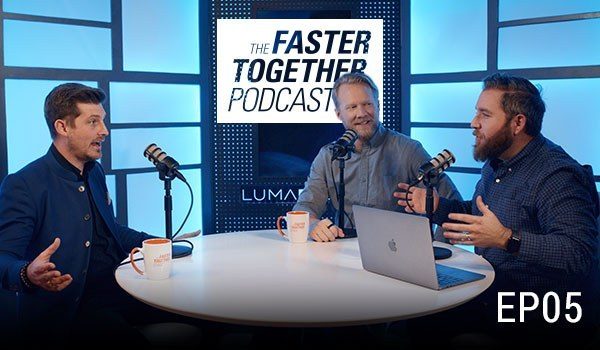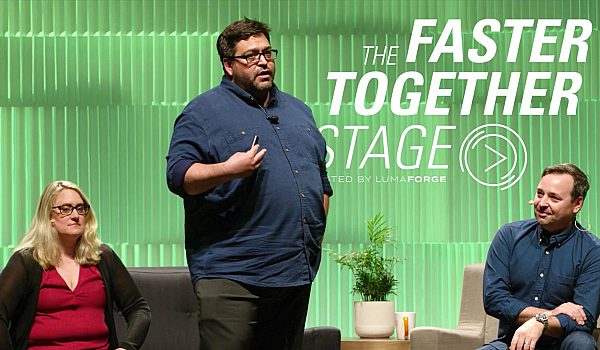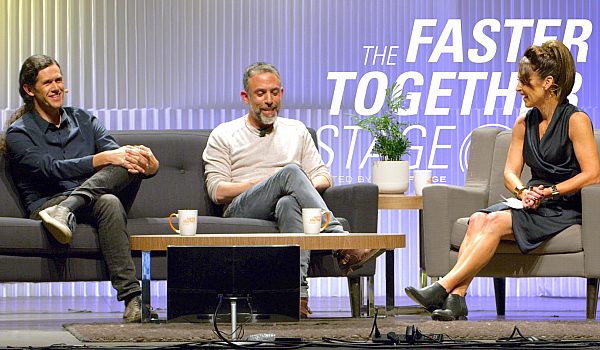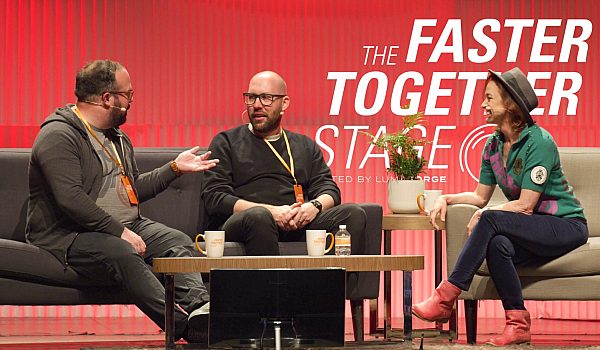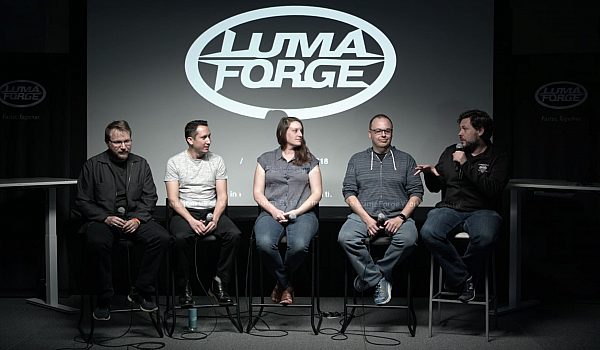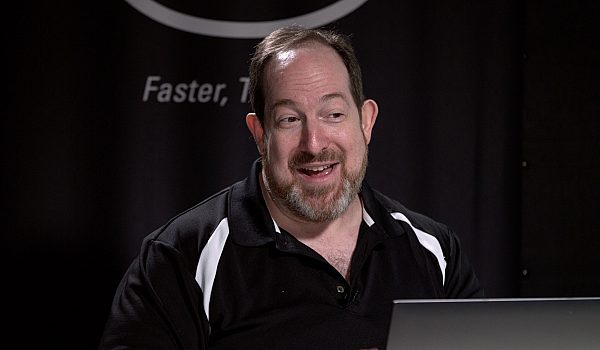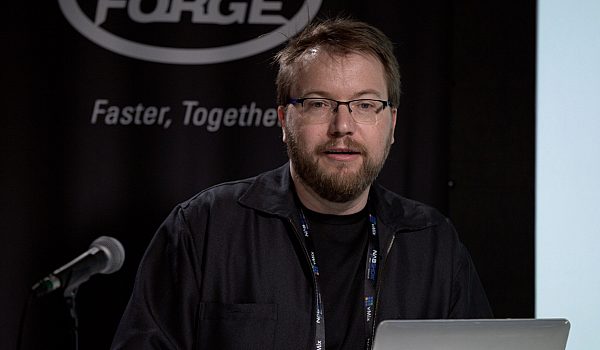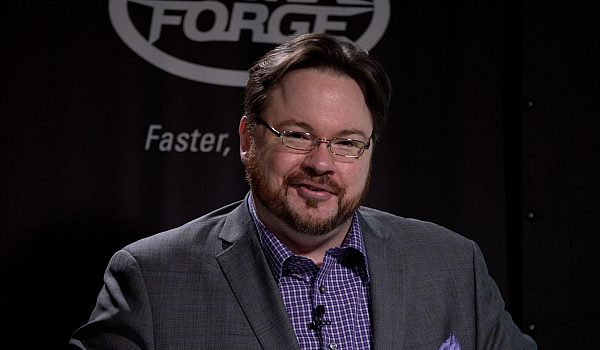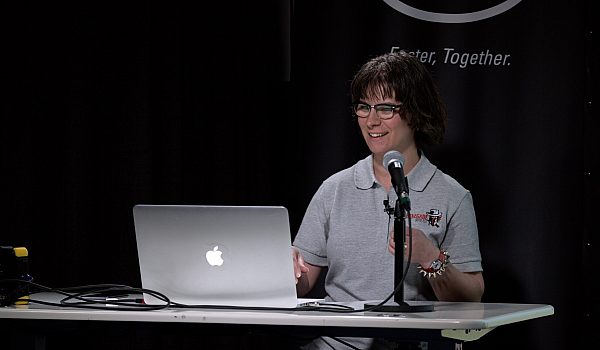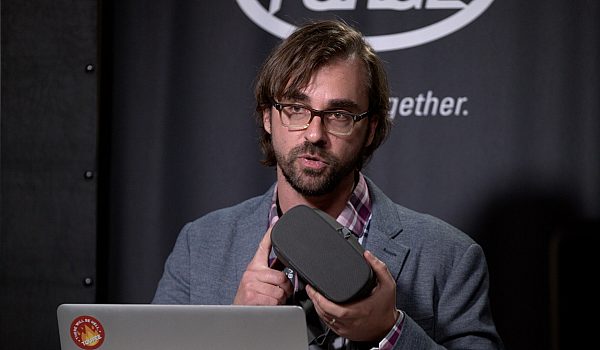Adobe Premiere Pro, Final Cut Pro X, DaVinci Resolve, Avid Media Composer...which is the best NLE for which job? Monica Daniel, Scott Simmons, Tony Gallardo & Vince Masciale discuss the current state of video editing in 2018 including software & client challenges.
Monica Daniel is an Assistant Editor for narrative television shows like Preacher, Supergirl, Colony, and Altered Carbon. While she mostly uses Avid Media Composer at work, discover why she sometimes uses Premiere Pro for personal work.
Scott Simmons is a corporate, commercial, and music video editor in Nashville, TN. Scott alternates between Adobe Premiere Pro CC, Final Cut Pro X, Avid Media Composer, and DaVinci Resolve depending on the job.
Tony Gallardo is an editor from San Antonio, TX. He largely uses Final Cut Pro X, DaVinci Resolve, and Blackmagic Fusion in tandem.
Vince Masciale is a feature film director in Los Angeles. He formerly was a documentary and reality editor. In fact, he was the first full-time editor for TMZ. Find out why Vince switches between Avid Media Composer and Adobe Premiere Pro CC from project to project.
- Welcome to Faster, Together 2018, I am Sam Mestman. This is going to be fun. So we're gonna start off with a brief discussion and then we're going to bring out the Jell-O and the mud and start a wrestling match here because we're talking about something that makes everyone angry, which is which NLE do you use and why? So there's going to be a lot of anger and tantrums. No, actually, what we are really going to try and do is get some informed discussion and a conversation from four working editors, all from different backgrounds who are doing amazing things. And they're going to talk about what they do and why. So before we get started, let's go ahead and quickly go up and down the panel and you guys can introduce yourselves. I wanna know what you guys work on, what tools do you use, and what inspires you.
- My name is Monica Daniel, I've been in the business for about fourteen or fifteen years. And the first about 10-11 years of my career I was working on non-union network television shows in Los Angeles. Game shows, clip shows, documentaries, short packages for live event coverage. All sorts of stuff, and in the last three years I made the move over to scripted television as an assistant editor, and the last thing I worked on was Altered Carbon for Netlix. And all of that work with the exception of two independent documentaries that were cut in Final Cut 7, was done in Avid Media Composer.
- My name is Scott Simmons. I work out of Nashville, Tennessee. So it's a different type of market where we've got a little bit of everything except you know, TV shows and movies. So I work on a lot of corporate, a lot of music stuff, commercials, a lot of multi-cam, a lot of music video things. I work in whatever, because I'm a freelancer. So I don't want to turn down a job, because I don't know how to use the tool. So I'm happy to work in anything. So far this year, I've done jobs in Final Cut Premiere and Media Composer. And sometimes it's one week I'm in one, then another week I'm in another, or maybe tomorrow I'm in another, or later in the day when I gotta make changes I'm in another. And ya, sometimes I get bored with one and I wanna use another one.
- My name is Vince Masciale. I'm actually a producer/director with background in editing. I run a production company called Lone Suspect and we do feature films and TV shows, and we've done a bunch of stuff for Funny Or Die. And I've been in LA for about 15 years, and edited for about ten of that. So I did a lot of unscripted TV, Nat Geo, Discovery Channel stuff like that. And kinda bounced around, as well. Did a lot of Final Cut 7. Did a lot of Media Composer and then personally I've finished a feature in Premiere a couple of months ago. And did a TV pilot in Final Cut 10. So I'm kinda all over the place.
- Hello, my name is Tony Gallardo and I'm from San Antonio, Texas, so not too far from Nashville. I've been doing this for about maybe 15+ years, 17 years. Editing, directing, I have a company and we do a lot of basically advertisements. So commercials, short promo stuff, that type of thing. So stuff that lives on the web and gets broadcast. And we have a Final Cut 10 house. So we have another editor and we bring in freelance editors. And we also can use Media Composer as well, and we also use Resolve. So, I'll cut sometimes in Resolve, and that's pretty much it.
- Alright, just to give you guys a heads up, feel free to build off each other's points, like this could be a conversation, so you know you can add to something that people say and etcetera, and it can be a little bit informal. But, you know, I guess to kick things off, what would you guys say is currently the biggest issue that's affecting the industry for editors and post-production at the moment?
- You have to do more and more as an editor, things that, I mean on the higher end productions they have everything specialized in individual departments, but I know people who have had their own businesses or just on lower budgeted TV shows you're asked to do the finishing. When I was working at E! I was the offline and online editor and I did everything in Media Composer where I was mastering the show, I was color correcting after I was done cutting the show. We would be doing all of the lower third titles, and adding the graphics in, that was stuff we all had to do.
- You need to Resolve.
- Resolve was not ready at that time. But I think, you know, clients expecting more for the same price or less, I think is a big issue, because the tools are capable of it. So they just expect that, "Oh, then, that's the same thing right?" It's like, oh no that's additional charge, it's a la carte.
- And how do you manage that, before we go in, like how do you manage those implications?
- Well, I'm kind of in my own little bubble. I'm working on Union shows. So there are strict contract regulations and rules in place to protect that, on the shows I'm on.
- I'm sure you guys see that too with the independent side right?
- Ya, exactly, we have to deal with that all the time, where it's like, "Oh, you can just deliver that to Snapchat "and Instagram and Facebook, and make all the different "versions of that thirty second spot."
- It's just a one quick time movie, right?
- "Right after lunch right?" And it's like, no, that's gonna take time we need to reframe. So that is something that for me has been the way I need to educate my clients and let them know like, listen I have no problem doing what you want but maybe is there room in the budget, or let's start thinking about adding some budget to this so that way we can get this done for you ahead of time. And don't ask me yesterday for delivery tomorrow, you know. But ya, we have to deal with that a lot.
- Another problem is that with the readily available tools everywhere a lot of clients kinda know what they do, even though they don't do it very well. Some of them may edit on their own a little bit or they may just surf the internet enough to know that, "wait I want to do this thing, "why can't you just do that thing, "why can't you mix the audio in there, "you have Adobe Creative Cloud, you can do whatever." And you have to deal with trying to educate them on what some of these things can and can't do. Besides the fact there are things that I can't do, nor do I want to do. I can try, it may suck, but is that what you want? You want it to suck? If you want it to suck I'll do it. And that type of thing, and they think anybody can do anything because it's the click of a software and a download and off you go and sometimes a preset.
- Ya, and I've had just like random little side projects that I've done. You know, they'd ask, "Oh can you do the sound mixing too?" I'm like, I can do a rough sound mix for approval review screenings. And they're like, "Oh you can't just do like "a mix and make it sound good?" And I was like, no you need someone who specializes in sound for that.
- Ya, I think there's pluses and minuses to that. Because as an editor, I always wanted to present the best possible work to executive producers. So, I would never be in a situation where I would actually have to color correct and finish when I was doing stuff for like Nat Geo or whatever, but I would send the sound guys and the music. We would do the music, but sound mixing and color would get something that's almost completely done by the time I was done with it, cause I wanted less notes from the executives. So if you present something that looks great and is roughly mixed, then executives have a tendency to give you less notes. So that was sort of my approach to it. So I guess there's some positives with it as well.
- So I want to know who has this mythical work flow where everyone gets these expectations that this can all be done immediately. Like where does that idea get created where the producers and clients turn around and say, like because it didn't happen on the previous job cause nobody knows anybody who's actually delivering it this way. So where does that conversation point start to where it then gets handed to us to go and have to defend what we do, when this was never agreed on?
- I think it begins often in their heads, because if you have a job that you do, and I'm doing a corporate spot or even a 30-second spot, and someone is on Facebook and they're scrolling through and they see this auto-play video that like, "wait, that's my competitor that's bought advertising there. "We don't have a Facebook video, "but we just did this video." So then they ask, "can you also do a Facebook video?" And you know, it's a different sort of medium, so you have to think about what is right on Facebook or on any platform or any place where it goes. But since they see it so readily, everywhere, it's just a natural thought to a lot of clients to say, "oh well, I need this too. "We did this, so why can't we do that." And I think often they're not trying to screw us out of, and get free work. It's just expected.
- I just think they don't understand the whole process and what goes into it.
- And it's part of that relationship too of building with them, and saying hey let's think about this and let's make sure we do this the right way for you. So that way you're executing and delivering when you need to for your product, and just having that relationship to educate them and say this is how we should do it. Going forward, let's do this, and that's helped me a lot.
- It's also helpful to just set those expectations up front, like I always you know, when I take on clients, my business partner gets annoyed with me sometimes. But I like to spell everything out before we start just so there are no surprises like, "oh, I thought we were also gonna do this "because everyone else does that." You know, I like to just get it on paper, this is what we're doing. That way, usually that kinda avoids a lot of the surprises.
- And I think unfortunately, just because it's so competitive out there, that you know we see posts on Facebook all the time. And the user groups about people are trying to undercut everyone else who is trying to make a living. So they'll do a lot more for cheaper cause the programs are so accessible. So it's very easy to put them on your laptop and get access to them. So, they're just saying, "well, I could "do all this for this amount." And it's like, well you get what you pay for. And then, you know, I hear stories, I think you've told me stories, Scott, of your like they end up paying you a lot more to do a fixer upper job.
- Sometimes totally. And there are times when you have to say, okay you're right, you probably can get it done cheaper somewhere else. Enjoy, take it. I'm happy for you to go do that, and I think good clients that you have relationships with won't do that. But you often get some that they really don't have any money for something or they have very little bit of money, and you have to weigh that. Okay, is it worth me doing it for a little money for this relationship or just let them take it away.
- Well and I think this is something that we all feel like. So I think probably what people watching this might be curious about is like, what is one specific thing each of you guys do to sort of separate yourselves and sort of develop that long-term client relationship? Where you can kind of stay above the fray in some of these things, what's the strategy that maybe somebody can apply to their career where you know they can separate themselves a little bit?
- I have a tendency to under promise and over deliver. When I have a client that I am cutting a project for. That's sort of a way that I, you know, I'll come in and kinda talk to them about a project and they'll ask me for certain things they want to do. And you know, I'll tell them what I can do. And then they'll know that I can exceed that expectation and usually the first round of notes come in and they're ecstatic. And that's a trick I've used with a lot of clients and it seems to work pretty well. As opposed to overselling them to get the job, and then turning in something that's less than desirable.
- I personally tend to be very accommodating. I don't necessarily fear a job that looks like a train wreck. You know, if it looks like a train wreck, sounds like a train wreck, smells like a train wreck, it's probably a train wreck. But I don't mind a train wreck, because in this day and age, with the state of the NLE's as they are now. It's pretty easy to fix a train wreck. It's not fun sometimes, and it may be a pain in the butt, and you have to weigh your budget and what you're charging and what you're being paid versus how big the train wreck is. But I think I try to be very accommodating to that kind of thing, and you know, not make the client feel bad that it is a train wreck. But you know what, it's like ya there's problems here, but we can fix it. And if we can't fix it, I can't fix it, we'll find somebody that can. Unless we determine it as unfixable, and that's a whole other bridge to cross.
- I mean, I'm working on these shows, I don't have my own business where I'm, my clients are my editors, my producers, my show runners. And even when I was editing, I was still trying to like see what I could do for the producers. But I think that assuring them that you do have their best interest at heart. Even when they're being completely unreasonable with the expectations. It's that whole, you know the politics of dealing with them, like for example, I use Media Composer for everything, and I can do really, I would like to say, pretty decent effects work, in Media Composer. And a lot of times people are like, "why aren't you doing that in After Effects?" I'm like, because they're not paying me to use After Effects. I am letting them know, they're paying me to use this software at their offices, they're providing it. And I do the best work that I can in that software, and I set realistic expectations of like, okay here are the limitations. If you want more than this of what I can do, of what you're paying me to do, you know you need to outsource that to like a graphics person or somewhere else. And you know, I just set those expectations but I assure them you know, I'm gonna do the best I can with what you are paying me for. And then we can work out, so you know, I don't lie to them, but I do, I try to say like okay let's see what we can do to accomplish you goals, and that's just you know client relations really.
- Ya, it's kinda a little bit of everything for me, you know, as a business owner, to keep a relationship with the client. To always be with them. To give them that reassurance that they need. But for me just becoming a creative solution for them. You know, hey let's talk more and advance in the creative stages, and so that way maybe we can provide more services for you. How can we help you deliver this or do you need helping finding music or original music. So that has opened up a lot of doors for me, just becoming a like more of a creative service for them. So hey, can you also provide this, I can help you find that. And so that's been kinda nice.
- And so let's shift our attention a little bit to the tech around this, because I think in a way it's a little bit like the Wild West at the moment. Because all of these different NLE's have strengths and weaknesses. You're going to find something that is kind of a deal breaker when it comes to a specific work flow and vice versa. And I'm sort of curious where each of you because you're all kind of in different spheres, see the current tool set winning and losing in your own worlds, and why?
- Final Cut 10 is amazing. Haha, no it for me, it is, there is no way I could have my business without it. Because I need to do as much as I can inside the NLE, motion graphics, and spits things out with quality as well. And so, I found out when I switched to Final Cut 10, I noticed that I stopped going to After Effects as much, just because I can start to do those things that I was going to After Effects before right inside my NLE. And the ability to make changes faster for my clients or have my assistants make changes faster is needed, you know, budgets are shrinking, the schedules are shrinking, and yes you can combat that and talk and plan through that stuff. But the reality is that they are shrinking. So it has definitely helped us to do a lot of those graphics, those promos right inside of Final Cut so that's been helpful a lot for us.
- I've got an InABate in my office that has Resolve installed on it, Premiere installed on it, Media Composer installed on it, and Final Cut 10 installed on it. And a lot of the projects that we do, whether it's a feature film with one editor and an assistant editor, or a TV pilot with one editor, or sketch stuff with one editor. It doesn't really matter what NLE we use, because they all can get the job done. Really depends on the editor who wants to come in, and what their preference is.
- So how do you make that decision about which one you're going to grab for which job?
- It's usually, you know, our last feature film that we did that I produced, the editor wanted to cut on Premiere. And I was a little hesitant because most of my background has been Media Composer. And I cut my last feature in Media Composer, and I know how reliable it is, and so he cut it in Premiere and we had no issues. And then I finished the film on my system in Premiere and had zero issues, and thought wow okay I can cut a feature in Premiere and it's almost identical to Media Composer. Now when you get into bigger scale TV work, when you've got six or seven editors, and multiple assistant editors and you've got producers who need to have access to footage and long footage. I think that is where Media Composer is still sort of edges out the competition because you know, project sharing and grouping is still, it's changing. I was at the Adobe booth and they're constantly implementing new features, which is making me consider Premiere for bigger stuff. But I think Media Composer still sort of has the edge on some of that, the higher end features.
- You know, I don't know, it's just. Well, I think it depends on, a lot of it's market based. And in my market, in Nashville, it's kinda become Final Cut 7 heavy. When it's Final Cut 7 ends its hay day. And it's really turned into a Premiere town. For the most part there are facilities that are Avid and CMT there it's on Avid. And there are some pockets of Final Cut 10 for production companies that like it. And I think that, for me personally, if it's not picked by the client, I will look at the project and decide what is in my mind best for it. And Premiere in its current innovations with the Creative Cloud has a little bit of everything. Does everything really well, but organizational stuff, that's really heavy on organization and it's kinda hard to beat Final Cut 10's way of doing things. But then there's the idea of, if you need something reliable or if you are working on a big show. I've done a couple of reality shows, Media Composer was the choice there, because no one's ever gotten in trouble for picking Media Composer because it's gonna get the job done and get it done reliably. Maybe a little bit slower, you know, slow is not always a bad thing but sometimes it's a bad thing.
- I see Monica wincing over there.
- Ya, I mean, it's kinda the diplomatic answer.
- I'm not saying anything, I'm waiting for my turn.
- It's a, well you know, the Wild West is now resolved because black magic is not going to suddenly decide, you know, we don't want this to be a top notch editor that everybody is using for editorial. They're just going to keep doing more and more and more. And I don't know what's gonna happen with that.
- So, I like to think of myself as NLE agnostic. Every time that, let's use nice words, silly debate comes up on the boards I'm just like rolling my eyes so hard. I'm like, really, really, you know, I think people should use whatever is best for them. I, the content I work on, I'm not working from home or from my own office. I'm working in their facilities and there's an infrastructure built around Avid Media Composer. I love Avid Media Composer, it's very, very powerful. I do see some of its weaknesses that the other NLE's have on it. Saying that, you know, for smaller things, I have the Creative Cloud too. I'll use Premiere, and if someone hires me on a job where they're paying me to use Final Cut 10, I'll finally learn it. But I mean, between -
- You're gonna love it.
- I opened it once. Then I closed it and said, I'll come back to it later.
- There's always time.
- It's on my computer, no wait, I put Final Cut 7 back on it. I didn't realize how to like hide it and install both. I learned that after I had already uninstalled it. You know, between the two, between Avid and Premiere, like those are my two go-to's for like the simpler projects where I don't need as much complex organization in the project, and maybe I'm just popping in some random H264's or multiple formats. You know, I'll just go to Premiere, it works really well, really fast with that. I'm comfortable with the interface, because I learned on Final Cut and Final Cut 4 I think was the first NLE I learned, and I have cut projects on Final Cut 7. So that interface is very comfortable for me. I work on a lot of really complex projects where we have seven editors accessing the data, and we have complex bin organization that is vital. And we're moving bins back and forth and getting, you know, stuff, media back from the online facility or sound. And so there's a set structure and nothing beats Media Composer for those kind of complex workflows, where we have multiple departments constantly feeding each other data. And so, Media Composer is great for those projects, and I know some people are just like, "oh God, that's terrible." And I'm just like, okay then don't use it. What I'm getting paid to work on is Media Composer, so I'm going to use it as best I can, and it's a really good tool, so is Final Cut 10, so is Premiere, it depends on what you're working on and how you like to work.
- I think some people who poo-poo Media Composer -
- They can poo-poo themselves.
- Well, they've never seen the complex workflow that goes into an episode like television or a feature film, and how many hundreds of thousands of hours in bins and -
- Or even just reality shows.
- Ya, reality shows even worse, because there's even more media there. And I think they've never seen what goes into that structure or that project that you're dealing with. It has to be reliable in those situations.
- Well, I will say, and maybe I'm jumping ahead here. Before NEB, in terms of updates before NEB, Premiere updated their software, Adobe had updated Premiere, and Avid updated Media Composer, and if you look at the features between the two, Premiere's still doing beta team collaboration stuff which is cool that they're adding. They added the very professional time code window, which is really cool that they're targeting professional editors. In Avid, this is no joke, if you didn't know this, their latest update was where the splash screen, which monitor it appears. And that was their update, that was the biggest feature, which screen the splash screen updates on. So, in terms of -
- Um, they had more than that in it.
- Um ya, they had quite a bit more than that.
- But that was, in the latest release, that was like the featured thing of what they fixed.
- Well, they have a bullet point of list of all the things, and that was one of the things.
- But that was the thing that they were saying, this is the first thing that they did, and to me it's like, alright which companies are paying attention to what customers are asking for right now, and I know -
- Well, here's maybe a way to reframe this discussion a little bit, because you're dealing with high end scripted work flows, where there is an established work flow that happens, but then on the flip side I think what a lot of people often don't realize is that there's a Wild West of content creation, where you're getting all kinds of formats and resolution and media dumped on you. And how are you tracking and managing that media and what are you doing with meta-data and all these things to simplify some of the aesthetic work that happens, and I think a question is if you're a kid kind of getting ready to enter in this industry, and you're getting dumped all of this out on you, because now we're getting endless amount of video content coming in. And it's more and more and more. I think it's one thing where if you have a facility and you're a doing a specifically scripted. That's a very established workflow. What do you guys, how do you approach projects that maybe have less structure to them.
- I add the structure, because I will go insane if I don't do media management. And I think that's one of the strengths of Final Cut 10, like I said, I'm not familiar with it, but I've heard it has fantastic meta-data and tracking and just organization and you can find things so quickly. And that's like a strength, it really has. It doesn't matter it's the Wild West. If you are editing something, you need to be able to manage that media. Just because you're getting it doesn't, because even on the high end we get all kinds of formats. And we're running that through our daily facilities deal with that management, but it has to happen. It still happens. It's just, we're getting more support, and you know maybe for some of the other NLE's, for someone who doesn't have like all these built in departments, the other NLE's will be better for that, because they have to do it themselves.
- Part of it is, that on these projects like you're talking about. People shoot themselves in the foot because they think because Premiere can edit any format in the world, they think, I can take any format in the world throw it in Premiere and start editing. But you still have to properly manage that stuff when it's coming in. That may mean trans coding, that may mean making proxies, that may mean a lot of different things. You can't just throw it all in, and expect it to go. You've never really been able to throw it all into Media Composer, even though the technology there let you do it, it's just, it's not going to work.
- Well what Media Composer does is it forces you to adhere to media management. Where as the other ones, they're a little more flexible and so if you're not disciplined yourself in managing your media. I don't know how many times I've seen stories like, oh look it's on someones C-drive, they have missing media from a client. It's like, how many times has that happened?
- Your Itunes folder.
- Or the Downloads folder.
- That's someone who hasn't managed their media, because they're just like, "oh great, I can just put it in and start cutting." And it's like no, no, no, there is so much more to that. It's a discipline.
- That is the nice thing about Media Composer is it forces you, it's slower to get in to it, because it forces you to be organized and diligent with how you get your media in, organizing your project. But then when you're moving, you can move really quickly.
- I feel it's the same way for Final Cut 10. You know, it'll take in anything, just like pretty much Premiere or Resolve will, but it really wants you to go by that meta-data, that key wording. And once you start doing that, which you should be doing that to begin with anyways, it really allows you to move fluidly. But if you do that in Resolve, there's a lot of features in Resolve that are very similar to that as well. It's got tons of meta-dated features that allow you to access and quickly sift through media and reconstruct your bins pretty fast, I think it's a dark horse.
- Alright, so now we're going to transition, we've got a couple, Jeff I think we're going to go a couple minutes over because there is a couple of more things I want to hit. But basically, I think, it's clear that this is evolving quickly, and things are moving very, very quickly. And I think as editors, we're being forced more and more to become more technical. How do you guys personally manage the technical learning side of this with like the creative, fun side that I think is a lot of why we got into the business in the first place?
- I actually love both sides of it, that's why when I was coming up I was an offline and online editor. As the online editor, I was dealing with more of the technical end, the deliverables, the mastering, and making sure stuff was broadcast safe, and I actually love both sides of it. It's, because sometimes you just get tired of being creative, and you just need a break. And I find that the technical stuff fascinating, because even knowing the technical stuff, it allows, if I have an understanding of the technical side, I could, it helps me get my work don't faster. Especially if I'm not waiting for someone else, like if I don't know how to do an output or spit something out for someone, and I have to wait for someone to do it. Or I could just spit it out myself.
- Ya, if you're passionate right.
- Ya
- If you're passionate about being creative and working and delivering a good product, a good story, whatever it may be.
- Ya
- That technical side is gonna creep up on you, where you gonna realize, I need to learn this. I need to dig in, that way I can be more efficient, that way I can open new possibilities.
- Ya, I think it, I don't think one takes away from the other. I think some people just don't want to, they want to be the artist. And I was like, well, I like both. I actually didn't go to film school, I have a Science degree in Psychology. I was doing Science classes. So the technical aspects of it always really appealed to me, but I also wanted to do the creative side. So to me they're very complimentary, and you know, I've intentionally, that's why I was able to transition into scripted so, without, well it wasn't easily, but they didn't have an issue hiring an editor as an assistant editor, cause I kept up on all my technical skills and was trying to build those. And it just made me more valuable.
- I enjoy both sides too, technical and creative, but I have found that when I get hired to edit on a show, I'm not getting hired to be technical, I'm getting hired to be creative, to be a storyteller. So that's when I have to turn off the technical side, and rely on assistant editors. And you know, could I go in and fix the group when it's broken in Avid? Sure, but they're paying me to edit and I should be watching the footage and learning to tell stories, so I have to call up the assistant editor and say like, hey my group is broken or I need an output or whatever.
- I don't know how many times when I was editing and they were like, oh somethings broken we have to, the assistants have to look at it. You know the assistants couldn't figure it out, and I was like, hey guys I'm just sitting here twiddling my thumbs on the internet, why don't I just go like see what's going on? And I would have the problems fixed in less than five minutes, because I have more experience and knowledge than the assistants. And it's like, I'm not above helping them, because I'm losing time because I just, it was like, it's their job. It's like, well, if they don't know the answer, like maybe we need to brainstorm to you know, try multiple things to see what's wrong. So, I'm not above doing that.
- I think if you're working outside of Hollywood, sort of system, in the trenches sometimes like we are, you have to be technical. You have no choice. You have to know how to set your machines up, you have to know how to fix things when they mess up, you have to know how to deal with hard drives and the Codex, and all that kind of stuff. And it's just a reality of doing production and post-production in this day and age.
- It's also part of of the client relationship too. If they know that you're technically savvy they may have a project that might be technical, and if you can assure them that, hey we can take care of this. We can weave in the creative with the technical, that's also a big thing. But ya, as a business owner, if something breaks down, I've gotta fix it.
- And, I think it's also valuable, just as you know, if you have your own business or what not, if you're hiring someone and they're completely BS'ing you, you need to be able to spot it, cause they're wasting your time, they're wasting your money. It could be jeopardizing your relationship with your client, because they're completely BS'ing their way through the job. That's not okay, that's not cool.
- So, this brings me to the final question, because unfortunately we only have time for one more. We're going to travel back in time for a little bit. If you guys could go back 20 year or however long, back to when you were first getting started, and you could tell yourself one piece of battle-tested, hard earned advice that you maybe didn't know then that you wish you knew that could've saved you time, money, and energy, what would it be?
- Think before I speak.
- Don't sweat the small stuff, because it's not worth sweating over small, medium and sometimes the large stuff.
- Don't get pissed off at your clients when they ask you to do stuff that you don't want to do, when they hired you to do it.
- If you want to get somewhere, it's gonna be you that takes you there. So don't waste time, get on that track and go, it's up to you.
- And I'll give mine to, which is don't be intimidated, because a lot of people will put themselves on pedestals and try to keep you in a certain place. And you have to protect yourself. And you have to remember why you got into the business. And you have to know your own value, and make sure that you are always improving yourself, because if you're not no one will.
- Actually, one thing I would like to, because I try to mentor a lot of people, and one thing I always tell them when they're in a tough decision is you're the only person who has your own best interest in mind. You have to, even someone who is like, a great colleague and you're working with them. In the end, they're going to do what's best for them, not necessarily what's best for you. Not that they're trying to screw you over, but they're going to do what's best for them. So you have to do what's best for you and if they're not complete asses, they will understand that.
- And to add to that too, it's also, find a mentor. Find somebody in the industry who is good, who you can lean on to get some advice from.
- Ya, and someone who will be honest with you.
- Ya, not that you have to follow it but ya
- Ya
- It's just good to hear that bounce card. Sometimes you have an idea in your head, but then when you say it, it's different. So find a mentor as well.
- So, I could do this for hours, but unfortunately we're out of time. Guys a big round of applause for our speakers here.
- It was fun.


 Mobile
Mobile
 Tower
Tower
 R24
R24
 Builder
Builder
 Manager
Manager
 Connect
Connect
 Kyno
Kyno
 Media Engine
Media Engine
 Remote Access
Remote Access
 Support
Support
